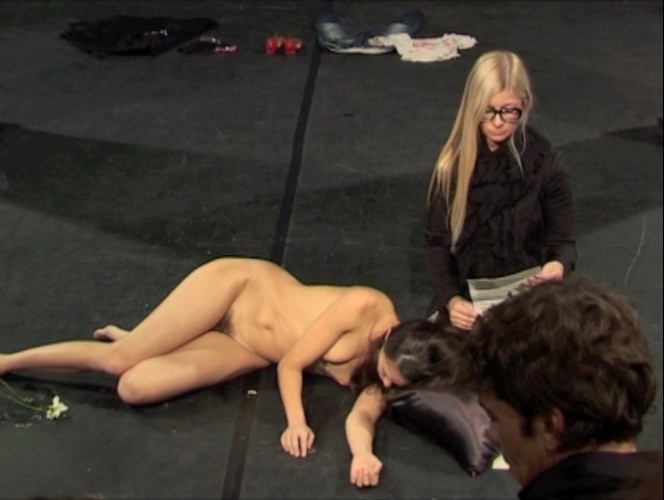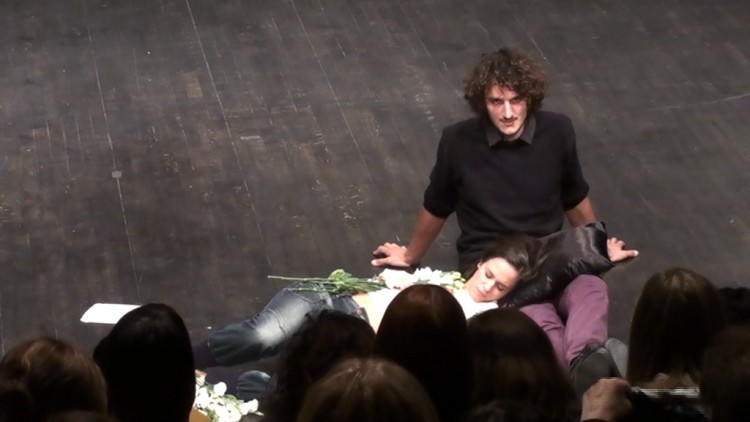The actress enacts her own death as a deeply intimate and extremely theatrical sensation all at the same time. Drop Dead is a play in which we all must act-out our role: the performer becomes a corpse, the viewer becomes an undertaker, the play becomes a funeral.
“What would you like to eat for your last dinner? Where would you like to be buried? How should they bury you? Who should come to the funeral? Who should deliver your funeral speech? Which song should be played at your funeral? What are your last words?” These are the questions that Katarina asks of the picked-out viewer who, at the end of this short conversation, dies in her lap. Of course, the audience doesn’t believe it’s really true, but this is not the issue here. This prologue is about the idea of death – this is what we all believe in. Death is profoundly intimate but at the same time an extremely spectacular sensation. The performance enacts both its faces: the intimate struggle of a dying person – “They told me I would go through three stages: first is denial, second is anger, and finally acceptance.” – and death as the ultimate spectacle experienced by those watching from the outside. Drop Dead is a play in which we all must take our parts: the performer becomes a corpse, the audience becomes an undertaker and the performance becomes a funeral.




